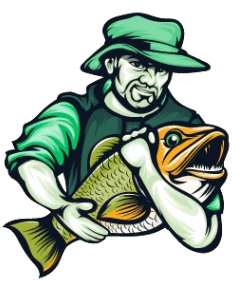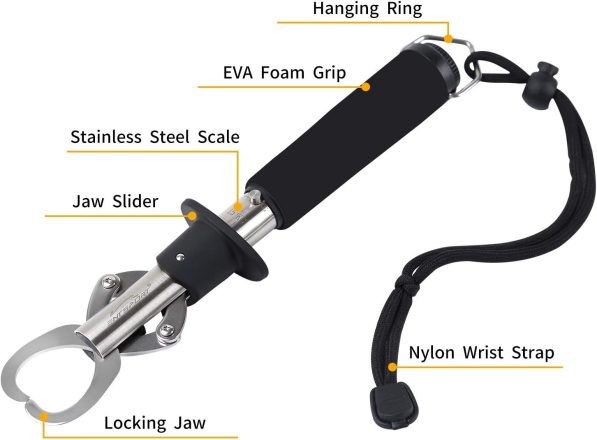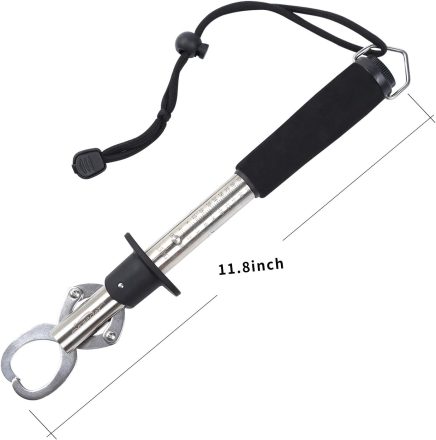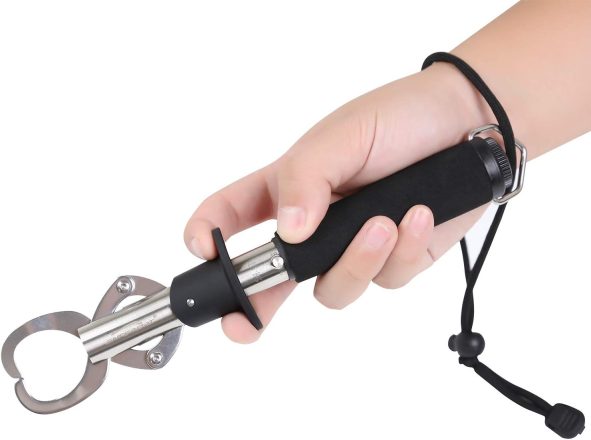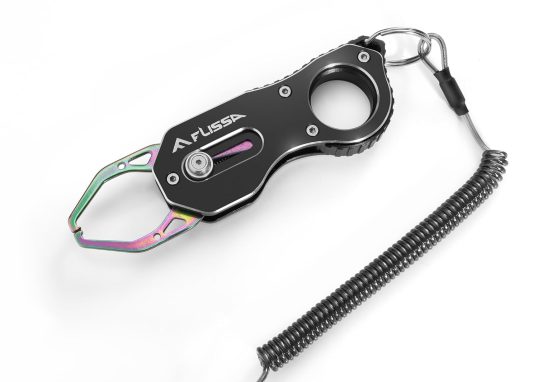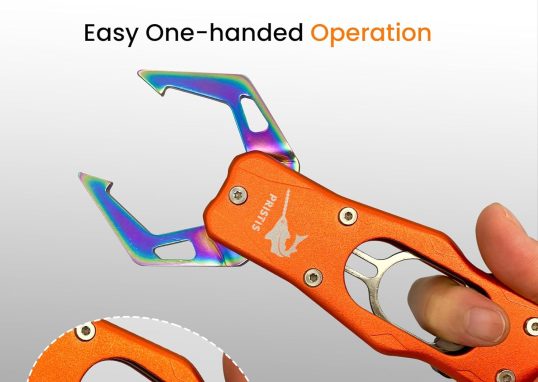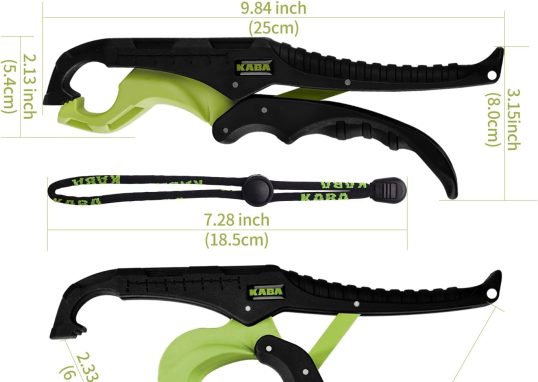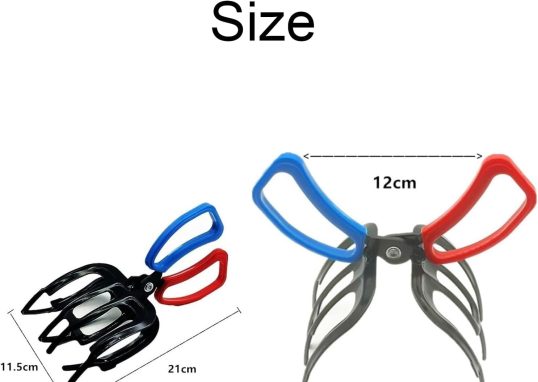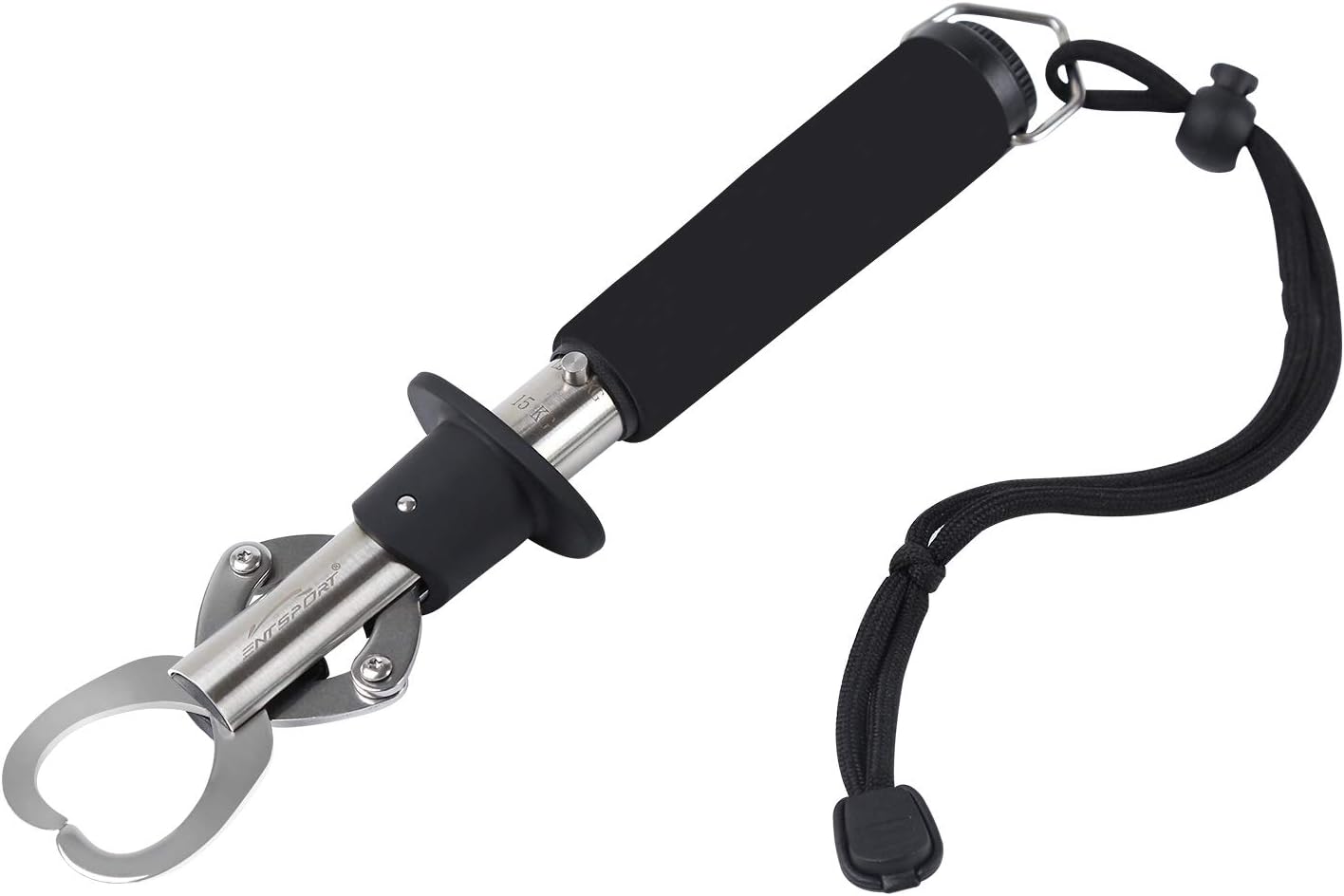
A fishing gripper is a tool designed to safely hold and handle fish, enhancing angler safety and minimizing harm to the fish, especially useful for catch-and-release practices.Fishing is an age-old practice that has evolved dramatically over the centuries. From the simple rods and nets used in ancient times to today’s advanced fishing gear, technology has significantly enhanced the experience and efficiency of fishing. One of the essential tools that modern anglers swear by is the fishing gripper. In this guide, we will delve into the intricacies of fishing grippers, their uses, types, benefits, and tips for choosing the right one for your fishing needs.
Click Here
What is a Fishing Gripper?
A fishing gripper, often known as a fish lip gripper, is a handheld tool designed to securely hold the lip or jaw of a fish. This tool is particularly useful for anglers who need to manage their catch without harming themselves or the fish.
The Evolution of Fishing Grippers
Fishing grippers have come a long way from their rudimentary predecessors. The earliest versions were simple metal tongs or pliers. However, these could often harm the fish or the angler. Over time, the design has been refined to improve functionality, safety, and ease of use. Many also feature ergonomic designs, digital scales, and other advanced features that enhance their utility.
Types of Fishing Gripper
Fishing grippers come in various types, each catering to different needs and preferences. Here are the main types:
Mechanical Fishing Grippers:
These are the most common type and operate using a simple mechanical mechanism. They typically have a trigger or handle that, when squeezed, opens the jaws of the gripper. Mechanical grippers are known for their reliability and ease of use.
Digital Fishing Grippers:
Digital fishing grippers are an advanced version that incorporates electronic components. These often come with built-in scales that allow anglers to weigh their catch accurately. Some models even have digital displays and memory functions to record the weight of multiple catches.
Lip Grip Scales:
They are particularly useful for anglers who want to weigh their catch without having to handle the fish too much. The scale is usually integrated into the handle of the gripper.
Floating Grippers:
These are designed to float if accidentally dropped into the water, making them ideal for use in boats or on the shoreline. They are typically made of lightweight materials and have buoyant handles.
Rotating Grippers:
These grippers have a rotating head that allows the fish to twist and turn without causing stress or injury to its jaw. This design is particularly useful for larger or more active fish.
Benefits of Using a Fishing Gripper
Using a fishing gripper offers numerous advantages, both for the angler and the fish.
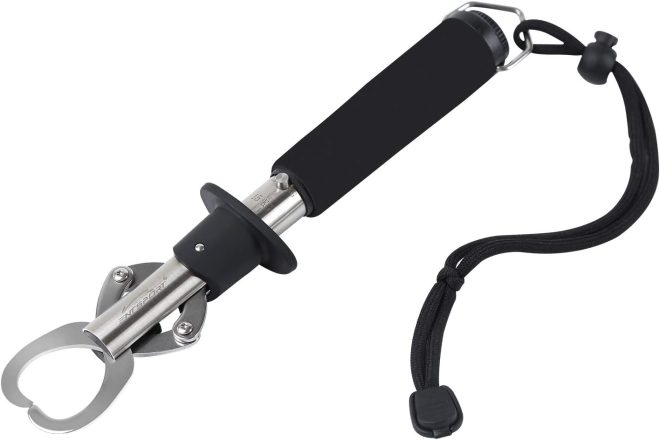
Click Here
Enhanced Safety:
Fishing grippers provide a secure way to handle fish, reducing the risk of being bitten, finned, or otherwise injured.
Fish-Friendly:
For anglers practicing catch-and-release, a fishing gripper is a must-have tool. It minimizes handling time and reduces the stress and injury to the fish, increasing its chances of survival after release.
Accurate Weighing:
Many fishing grippers come with integrated scales, allowing anglers to weigh their catch without needing a separate tool. This is particularly useful for tournament fishing or keeping personal records.
Improved Control:
Grippers provide a firm hold on the fish, making it easier to manage while removing hooks or taking photographs. This is especially useful in rough water conditions or when dealing with slippery fish.
Durability:
High-quality fishing grippers are made from robust materials like stainless steel or aluminum, ensuring they can withstand harsh conditions and frequent use. Many are also corrosion-resistant, making them suitable for both freshwater and saltwater fishing.
Key Features to Look for in a Fishing Gripper
When choosing a fishing gripper, there are several important features to consider to ensure you get the best tool for your needs:
Material:
Look for grippers made from high-quality, corrosion-resistant materials like stainless steel or aluminum. These materials are durable and can withstand exposure to water and the elements.
Grip:
The handle should be ergonomic and provide a secure, non-slip grip. This is especially important when your hands are wet or when handling larger fish.
Jaw Design:
The jaws should be strong and designed to grip the fish securely without causing injury.
Scale:
If you want to weigh your catch, look for a gripper with an integrated scale. Digital scales are more accurate and often come with additional features like memory functions.
Floatability:
If you fish from a boat or near the water, consider a floating gripper. This feature ensures that the gripper won’t be lost if accidentally dropped in the water.
Rotating Head:
A rotating head can be beneficial when dealing with active or larger fish, as it allows the fish to move without causing injury.
Durability:
Ensure that the gripper is built to last. Check for features like corrosion resistance and robust construction.
How to Use a Fishing Gripper
Using a fishing gripper is straightforward, but proper technique is essential to ensure the safety of both the angler and the fish. Here are the steps to follow:
Catch the Fish:
Once you have caught the fish, reel it in close to you. If you are using a net, use it to bring the fish within reach.
Prepare the Gripper:
Open the jaws of the gripper by squeezing the handle or trigger.
Grip the Fish:
Ensure a secure hold but avoid squeezing too tightly to prevent injury.
Lift the Fish:
Lift the fish using the gripper, supporting its body with your other hand if necessary, especially for larger fish.
Weigh the Fish:
If your gripper has an integrated scale, use it to weigh the fish while it is still gripped.
Release the Fish:
If you are practicing catch-and-release, carefully lower the fish back into the water and release the grip, allowing the fish to swim away
Maintenance and Care
To ensure your fishing gripper remains in good condition and performs reliably, regular maintenance and care are essential. Here are some tips:
Rinse After Use:
Always rinse your gripper with fresh water after use, especially if you have been fishing in saltwater. Saltwater can cause corrosion and damage to the metal components.
Dry Thoroughly:
Dry the gripper thoroughly after rinsing to prevent rust and corrosion. Pay special attention to any moving parts and joints.
Lubricate Moving Parts:
Periodically apply a light lubricant to the moving parts of the gripper to ensure smooth operation and prevent rust.
Inspect Regularly:
Regularly inspect your gripper for signs of wear or damage. Need Rod click
Store Properly:
Store your gripper in a dry place when not in use. If possible, keep it in a protective case to prevent damage.
Tips for Choosing the Right Fishing Gripper
Determine Your Budget:
Fishing grippers come in a range of prices. Determine your budget and look for a gripper that offers the best value for your money. Keep in mind that investing in a high-quality gripper can save you money in the long run.
Try Before You Buy:
If possible, try out different grippers in a store before making a purchase. This will give you a feel for the grip, weight, and ease of use.
Consider Additional Features:
Think about any additional features you might need, such as an integrated scale, a rotating head, or a digital display. Choose a gripper that meets your specific requirements.
Conclusion
Fishing grippers are indispensable tools for modern anglers, offering enhanced safety, improved fish handling, and accurate weighing capabilities. With various types and models available, there is a fishing gripper to suit every angler’s needs and preferences. By considering factors such as material, grip, jaw design, and additional features, you can choose the right gripper for your fishing adventures. Proper maintenance and care will ensure that your gripper remains a reliable.
Click Here
